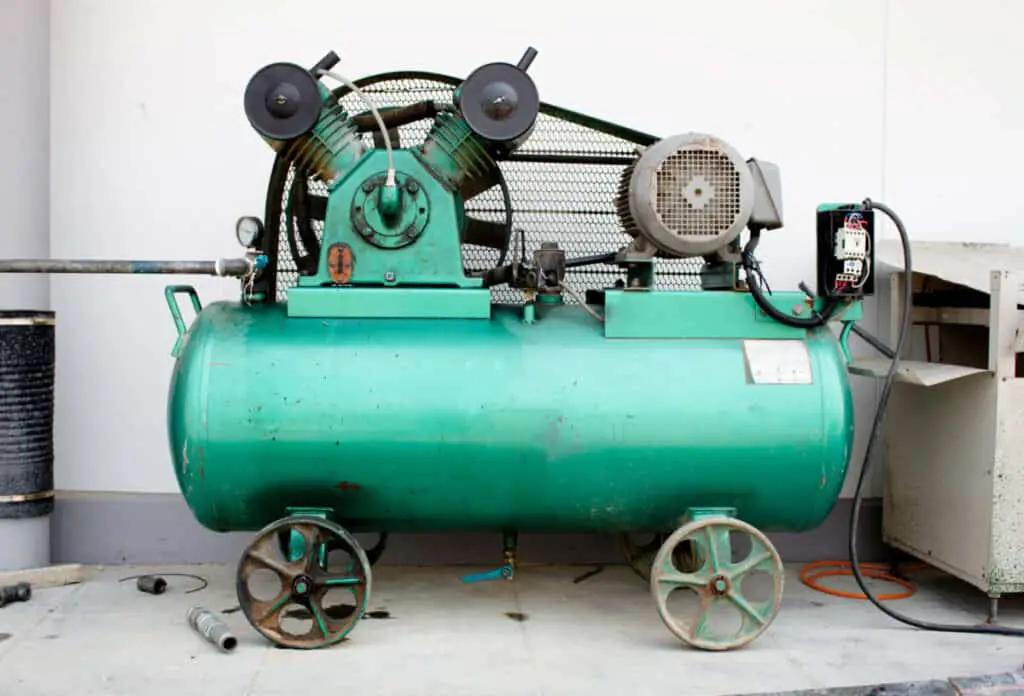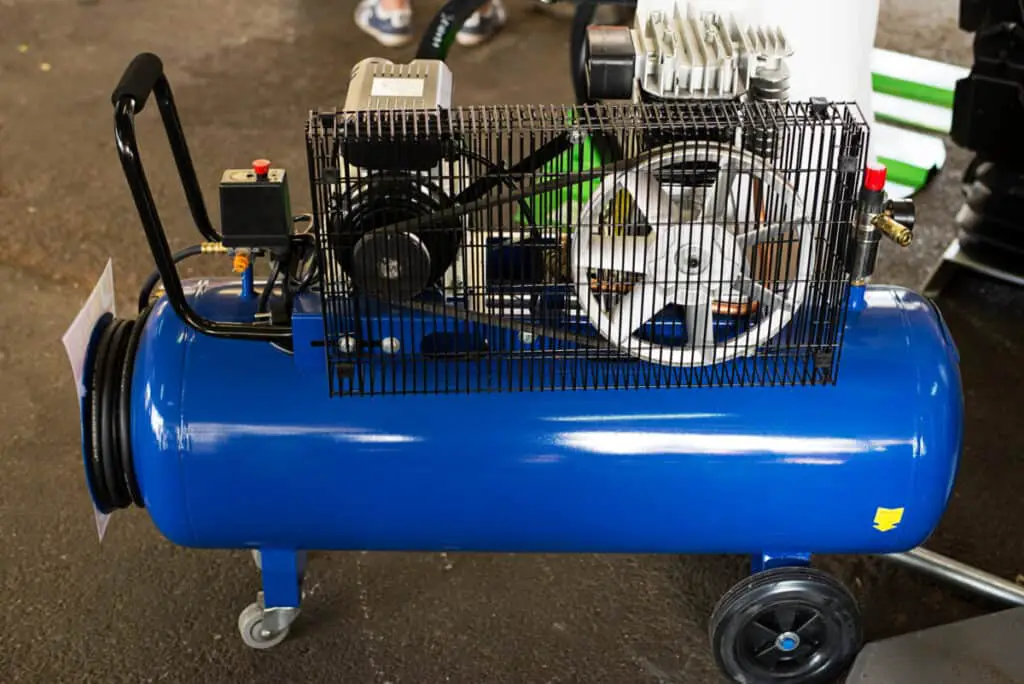
Many big factory plants pay a contractor to take away old air compressors to be scrapped or to be refurbished and sold elsewhere. But if you’re looking at how to dispose of your own personal air compressor, there are a few ways you can do that.
Used air compressors can be recycled, sold, or donated. Often, however, selling or donating old air compressors depends on their level of functionality. Before recycling an air compressor, release all pressure from the tank to prevent dangerous, accidental releases during the recycling process.
There are some more things to know about each of those options than just the basics. Also, if you’re feeling creative, there are some other ways to dispose of and yet still repurpose your old air compressor.
Recycling an Air Compressor
This would probably be the choice mainly recommended if your compressor isn’t working anymore. Many local laws prevent you from just throwing away your old air compressor. And most times, your air compressor is too big to fit in the trash can.
Typically an air compressor has a motor, a tank, a pump, and some cords. You’ll need to separate every part possible to recycle it. If your compressor has a base, that will be the first thing you remove. Next, you’d carefully, and safely remove the power cords and subsequent wires that are attached to the compressor’s motor using the appropriate screwdrivers. Once the power cords are removed, next you would detach the motor from the tank. Next comes the other accessories on an air compressor, such as the pressure switch, regulator, the drain tank valve, and the feet/stand.
Once everything is separated from one another, most things can just go in your regular trash. The metals can be sold for scrap, this includes the motor. The tank itself will need to be taken to a scrap metal recycler as well, however, you will need to call ahead and make sure they can take it. There are also a couple of DIY projects that can be done with an air compressor tank if you have time and want to reuse it.
When dumping your air compressor tank, depending on the state, county, or other local laws, the tank may have to be cut before it can be properly dumped. If it’s legal in your area, it’s possible to do it on your own with a plasma cutter so long as all the residual gunk inside has been as drained as possible. It’s also recommended to drill some holes in the area you plan to cut before you cut the tank. If it’s not legal, it’s recommended you find a scrap metal center or recycler that is available to do so.
Selling an Air Compressor
If your air compressor is still in working condition, and you think it’s good enough quality that you could make some money off of selling it, then selling it may be the choice you’d make.
Most social media marketplaces and auctions such as Craigslist, Facebook Marketplace, and eBay are good places to sell your compressor. Make sure when taking pictures of the compressor to sell it that their quality is good and that the air compressor has received a good cleaning and looks nice/in decent condition.
When choosing the price range to sell it for, most air compressors are sold aftermarket within the range of $100-125 per hp. Pricing will depend on whether or not the conditions of the compressor are good or better. Besides quality photos and pricing, remember that the brand name and specific model are also important for potential buyers to know.
There are websites that will repurpose old air compressors as well. Some retailers might buy back old air compressors to refurbish and put them back on the market.

Donating an Air Compressor
There are a couple of places you can donate your air compressor to if it’s in good working condition. If there are any reuse companies in your area, give them a call to verify if the item can be accepted and the hours they’re open for drop-offs.
Not many other donation centers will take air compressors. The Salvation Army is the one most likely to accept one as a donation, but again you would have to call and verify that your specific one may be taken. Many times, items like this have to be dropped off at a scheduled time when they are prepared to accept larger or more specialized items.
If nothing else, try seeing if someone you know is in need of one and you can give it away.
Other Things to Know about Disposing of an Air Compressor
Earlier, we talked about some DIY projects that can be done with an air compressor tank. If you want to try and have the time, here are some of those ideas: smoker, bbq/grill, a planter for flowers or vegetables, and it’s even possible to design a firepit! However, when doing these DIY projects, please remember the proper safety and follow the given instructions as strictly as possible. Check out the following youtube video about how to repurpose an air compressor into a fire pit for inspiration!
It is also possible to get an air compressor fixed and keep using it if that’s something you desire. There may be local companies around that either include air compressor repairs with their services or are solely based on repairing air compressors. Sometimes local hardware stores and retailers have such services available as well. If not, it is also possible to make and do repairs yourself, depending on the issue. Just as with any of the DIY projects involving repurposing an air compressor, you need to take the proper safety precautions and follow the given instruction and recommendations accordingly.
No matter what you choose to do with your old air compressor, any of these options are better to do than just throwing it in the dump where it can cause environmental harm, or be mistaken for a bomb that hasn’t gone off. The need to properly get rid of an air compressor is important to people’s safety and concern as well. And when it comes to repurposing it through a DIY project, the possibilities are only limited by your own creativity and imagination, and the resources available.
Related Topics:
If you like the article above, here are some other similar articles you should check out!
